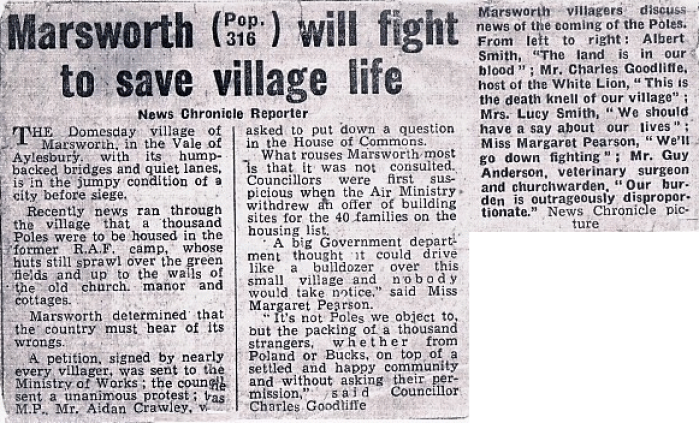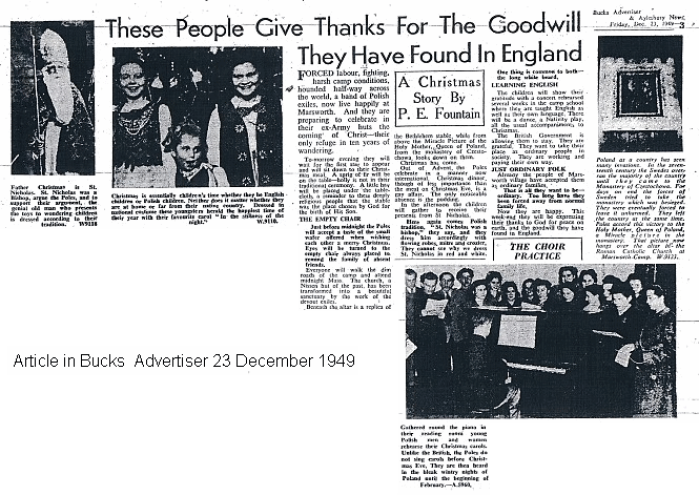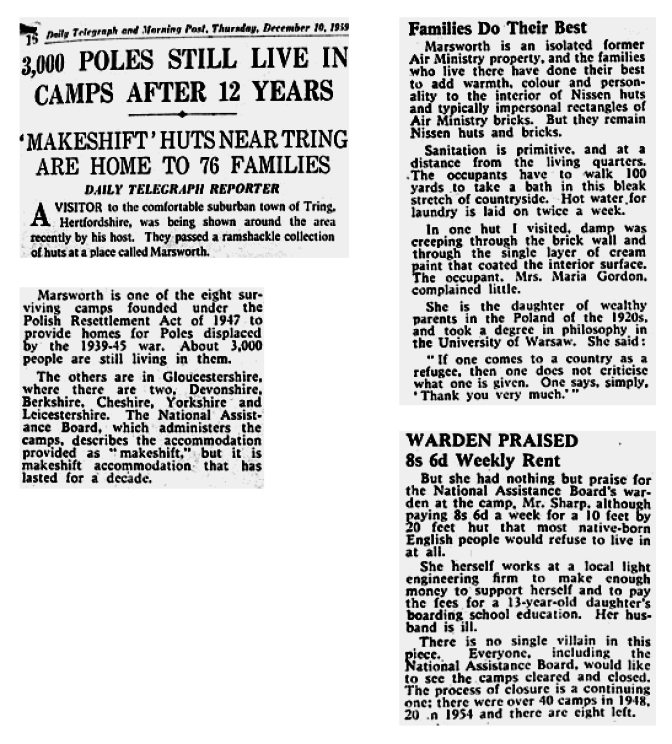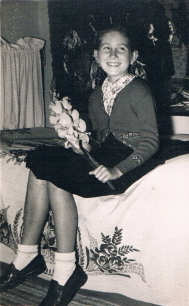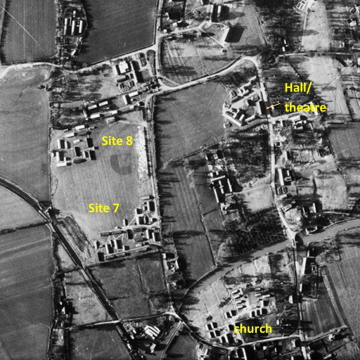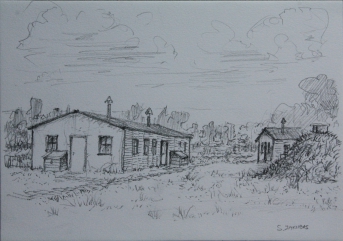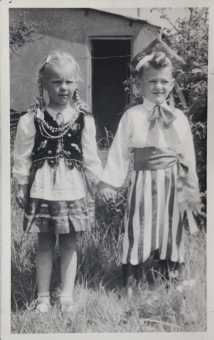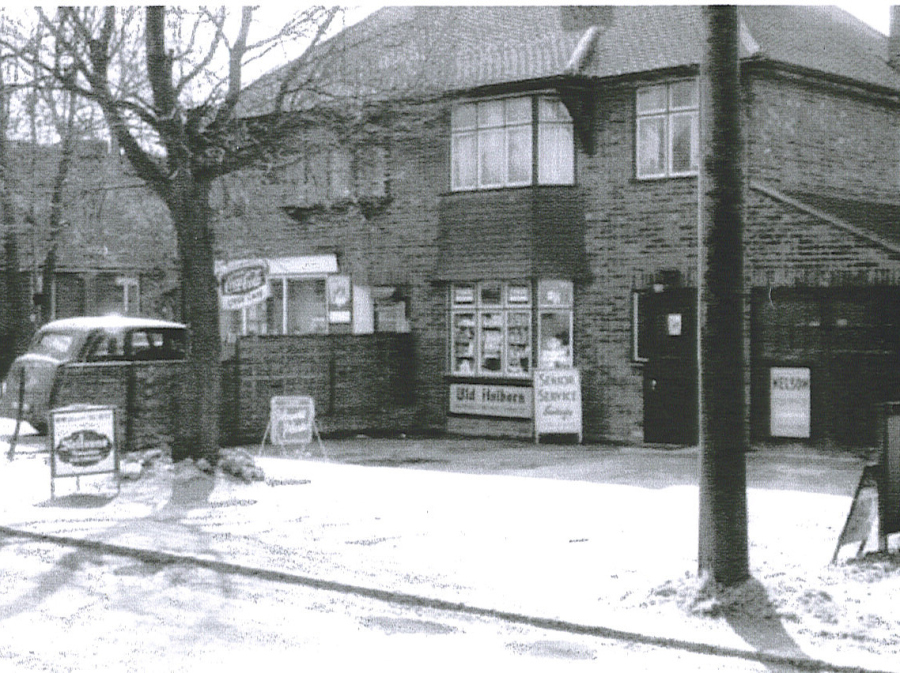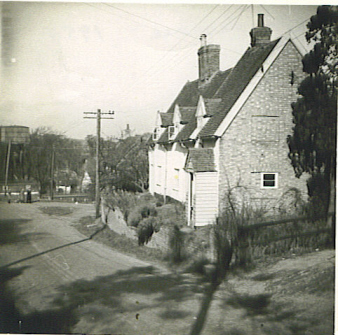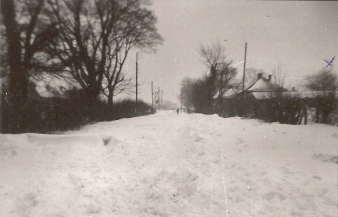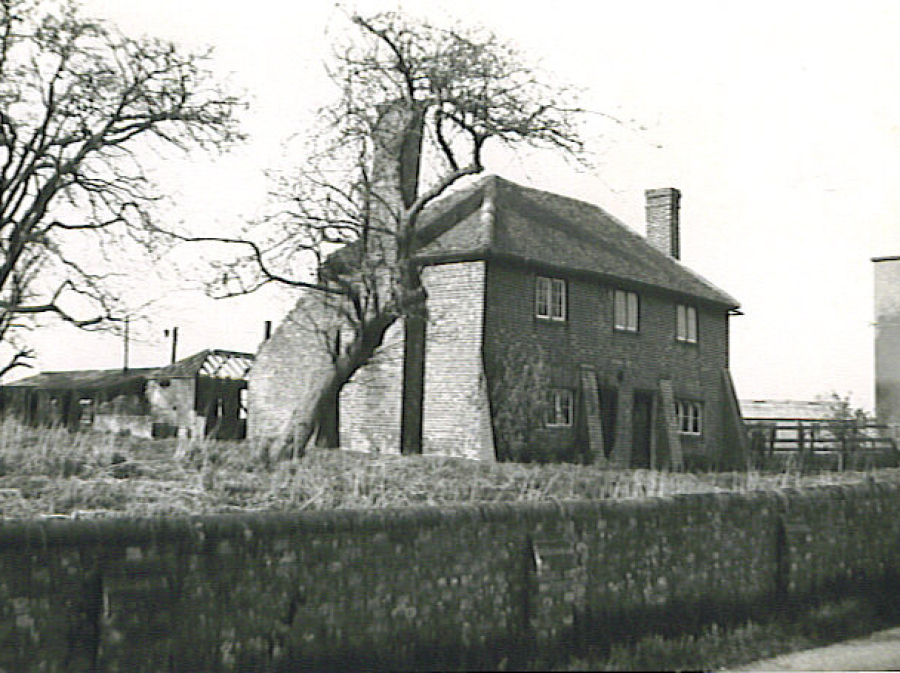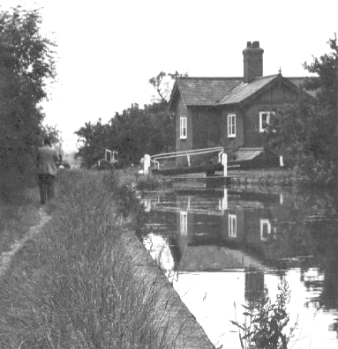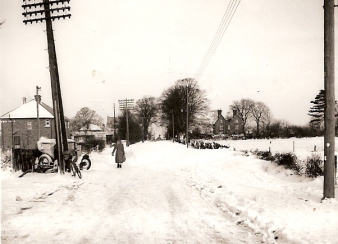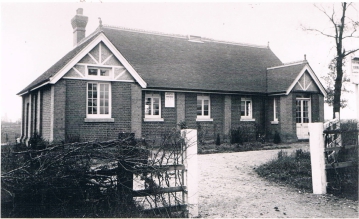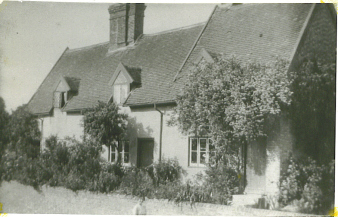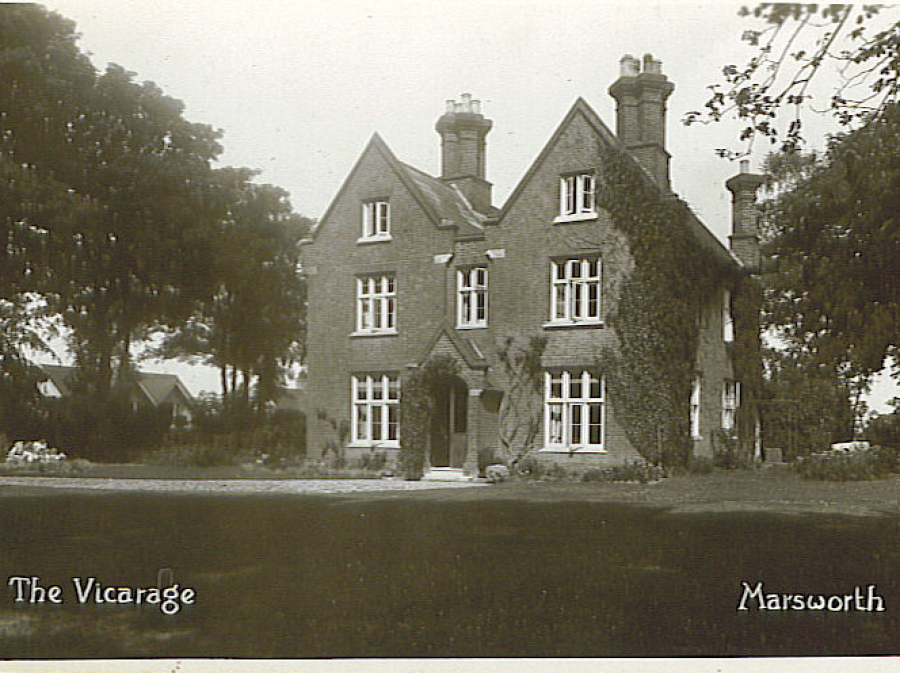Marsworth Village and the Polish Hostel
Initial concern turns to welcome
At first the small village of Marsworth (pop.300) was concerned at the prospect of suddenly having three times that number as part of their community, but they quickly found that the newcomers were families, many traumatised by wartime events, who wanted to make a new home for themselves and were grateful to have found a refuge in Britain. They were then pleased to make the newcomers welcome.
The people of Marsworth were able to attend the dances, cinema and other entertainments at the Hostel hall, and their children became friends with the Polish children at the local school.
LIFE AT MARSWORTH HOSTEL
- Through local eyes
During the War long huts with thick corrugated roofs (Nissen) were built in fields on the outskirts of Marsworth. After the war they were occupied by Polish families. Each hut was only divided by curtains; very hot in summer, bitterly cold in winter.
Many of the women crocheted mats and bedspreads which were very colourful. Men cultivated their small gardens to grow vegetables and herbs; fennel was very popular. They used more primitive garden tools than we do.
Mabel Goodliffe
I have very fond memories of my childhood in the Polish camp in Marsworth. The people of Marsworth village were very friendly and helped in any way they could. Jan Baliszewski
The Polish men used to drink at the Red Lion – but not at the White Lion. The Poles were very nice people to get on with. Rex Jeffrey
Mr Jeffrey spend four years delivering coal locally with his father (W F Jeffrey of Wilstone) during the post-war years. Coal and coke was delivered to various coal bunkers at the camp. They delivered 16 tons of coal a week and 1 load of coke a day.
The Jeffreys also used to act as removalists when the Poles moved to homes elsewhere,
taking their furniture. He remembers going to Berkhamsted, Hemel Hempstead and Pitstone. The last ones went from Site 12.
The Hostel
The Polish Hostel extended over a wide area and there were one or two entrances. Many of the women worked at the Silk Mill and would take the bus into Tring every day.
One of the entrances was just over the first canal bridge in Church Lane through Gurney’s Farm. This was a sort of back entrance I guess, but a number of people used it as I well remember the groups of women walking past our house in Church Lane on their way home. This entrance took them into one of the main sites and you could walk through and come out at the entrance by the hall as it all joined up at Bluebells. Margaret Johnson
Margaret lived at the bottom of the photo, below the word 'church'.
My dad said that after the dances at the hall the girls would frequently wait where Church Lane begins to be escorted back to the camp. They were afraid to walk alone as someone had said the lane was haunted.
Lilian Buczak
About 1949/50 long huts with thick corrugated roofs (Nissen) were built in fields on the outskirts of Marsworth which were occupied by Polish families. Each hut was only divided by curtains; very hot in summer, bitterly cold in winter. The children taught in local schools often had to translate for their parents. We soon learned Polish names for essential foodstuffs which we provided. Eggs (jajki) and duck eggs (kaczek jajki) they consumed in large quantities.
The cook to the priest looked after him very well. She once gave me a very large cake for Christmas which was so rich in cream and a load of spices it lasted until
nearly Easter.
We were not used to such rich cakes.
Many of the women crocheted mats and bedspreads which were very colourful.
Men cultivated their small gardens to grow vegetables and herbs; fennel was very popular. They used more primitive garden tools than we do.
When first they came they used self-selection of fruit and vegetables on display which we did not like but is prevalent all over the country now. [Mabel’s family kept a grocery store in Tring.] The self-service stores were a boon to them as they just selected what they wanted and did not bother to learn the English names. I used to go for orders after early closing on Wednesday and get some assembled to deliver Thursday evening and some on Friday. They bought several tins of Lyons coffee which they sent back home to their relations. Mabel Goodliffe
Having the Polish children at our school did not seem strange to me. They had come to live in our village and therefore would quite rightly go to our school. We had to get used to strange names like Lonia, Yashia and Lutek but we also learnt some Polish words – at seven years old, learn three words of Polish and you consider yourself to be fluent!
The Polish people kept themselves to themselves in many ways but once they had settled in and were able to speak more English they joined in with village life as far as school events were concerned. We were always jealous of their wonderful national costumes which were worn for dancing displays or sometimes in the school productions.
What we didn’t think about of course was that they were living in what amounted to huts, although they made them very comfortable. They must have been very difficult to keep clean and were undoubtedly very cramped. Margaret Johnson
My father knew several of them as they all came to him for their medicines and toiletries [to his chemist’s shop in Tring]. Dad always said that even if their
English was limited the Poles were wonderfully polite and so grateful to be living somewhere where they felt safe.
Richard Cooper
PHOTOS OF MARSWORTH IN THE 1950s
Our English neighbours were well-disposed and friendly to the camp’s residents. Young people did go to the local pubs sometimes, everyone behaved well and there was no friction that I can recall.
People felt happy and safe at Marsworth, it was a good, peaceful life. On leaving that quiet, homely place Marsworth, where we had been so happy and settled, everyone experienced a certain regret. Even years later, on meeting friends who had been at the camp, we would still speak with great affection and nostalgia about the time when we lived in the ‘barrels of laughter’.
It was such a close community, many of us stayed in touch and lived within easy reach of one another. There are still some of us living in and around Luton, Dunstable and surrounding areas, as well as our children and their families. It should be remembered that the post-war years were very hard for everyone. Britain was devastated by the war, yet found room for thousands of us who needed help and refuge. For this we were, and are, very grateful. Bronislawa Glinska
The years he (Edward Buczak) spent in Marsworth were happy ones. The photos capture his youth in Marsworth and speak of his freedom in this country. Lilian Buczak

